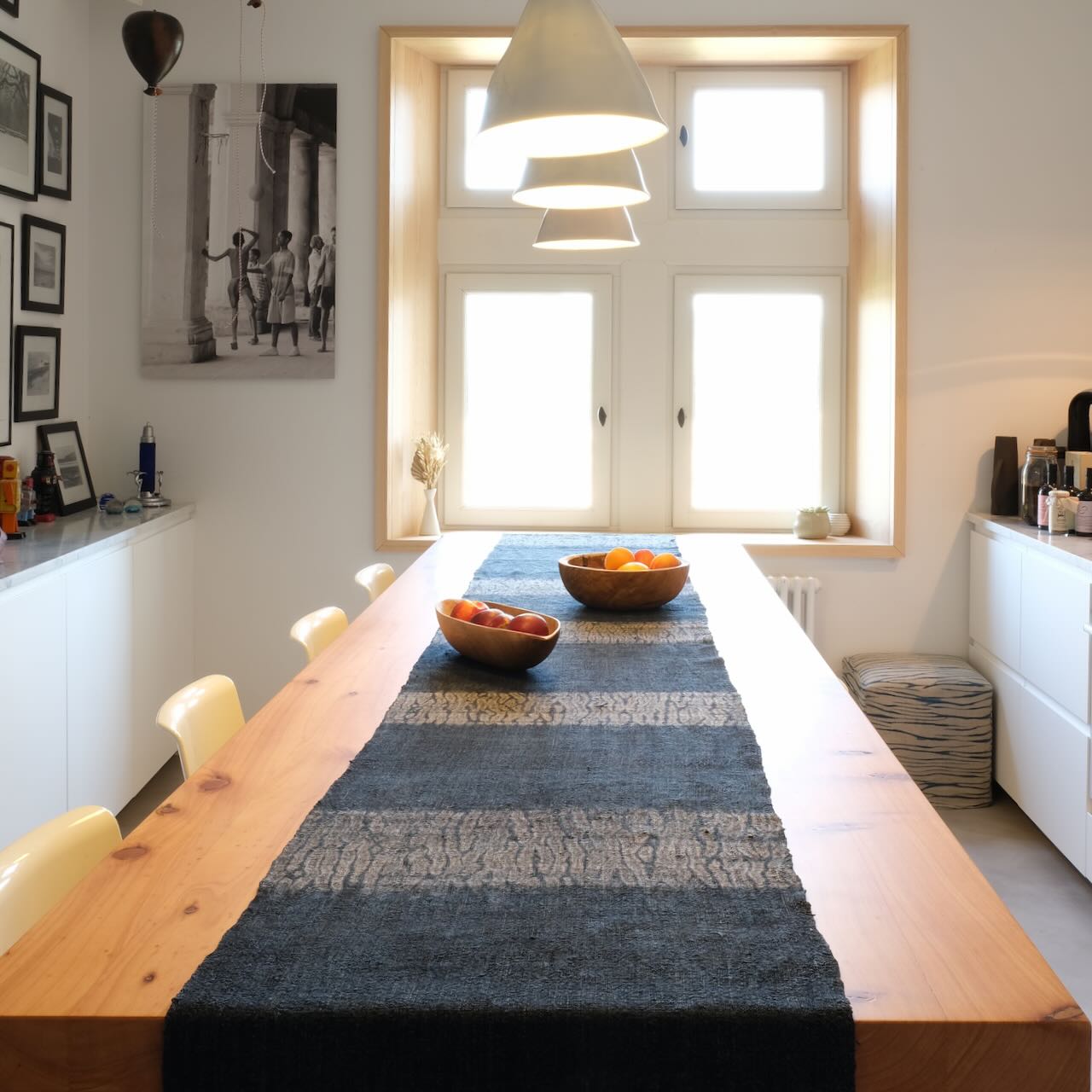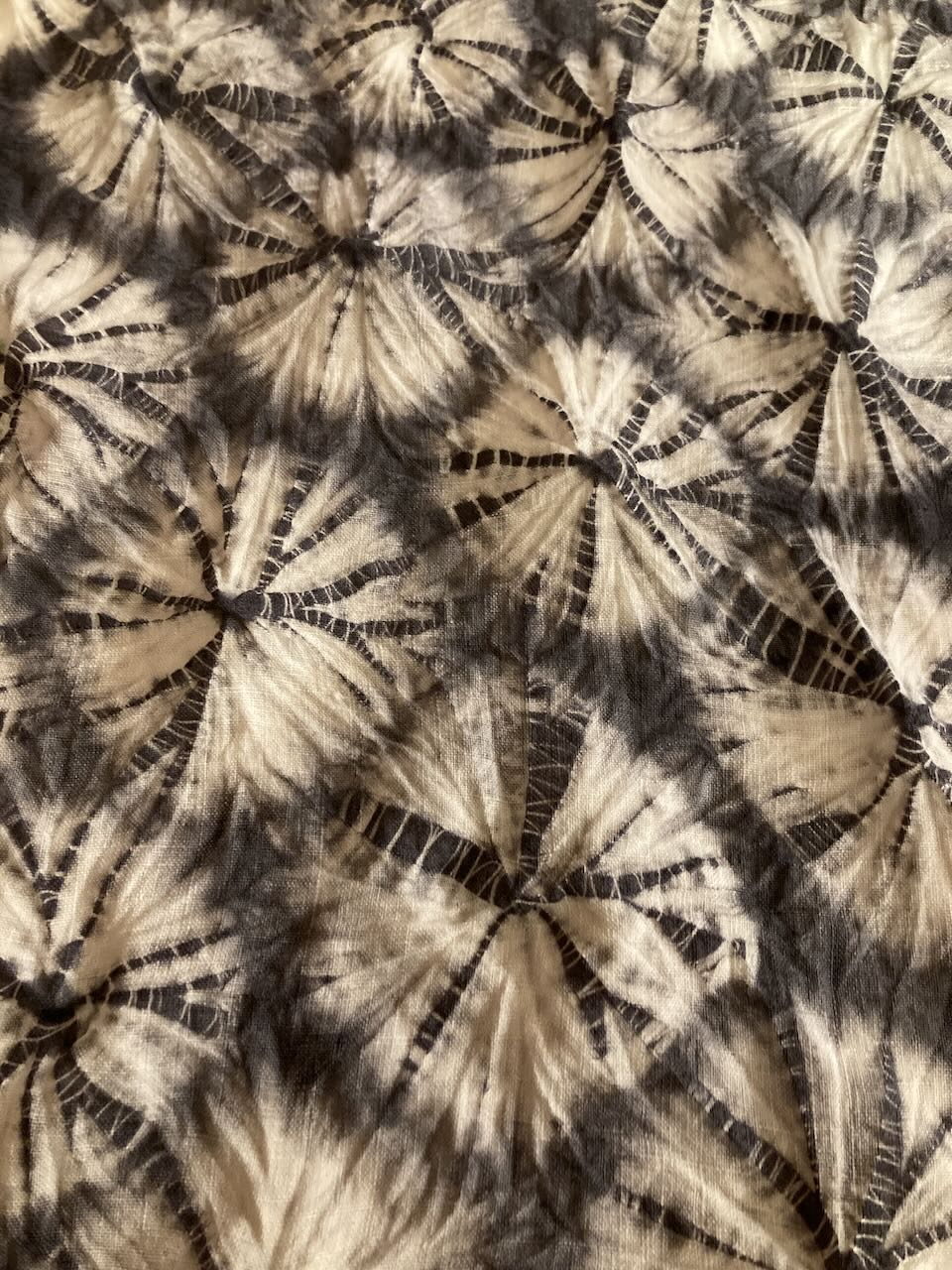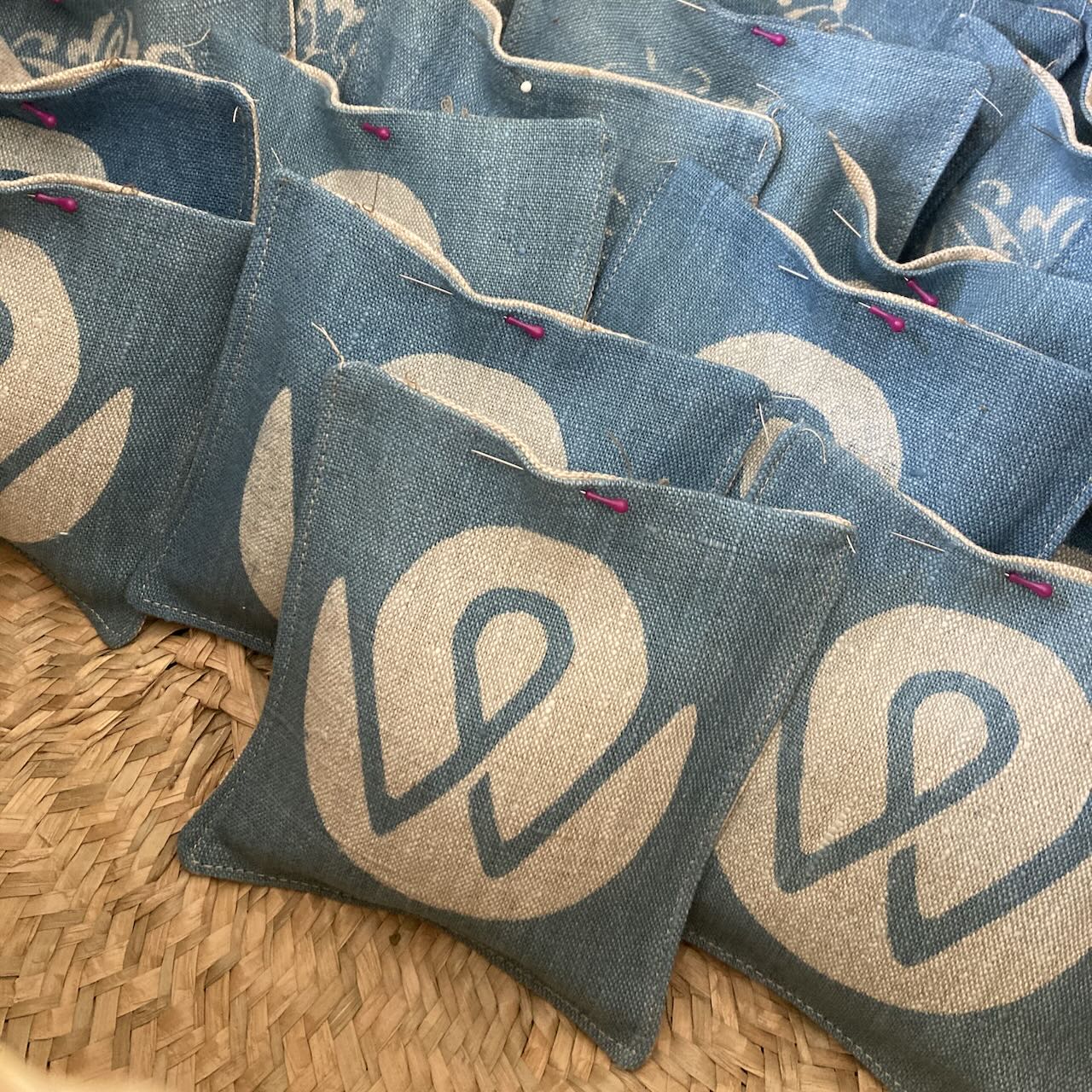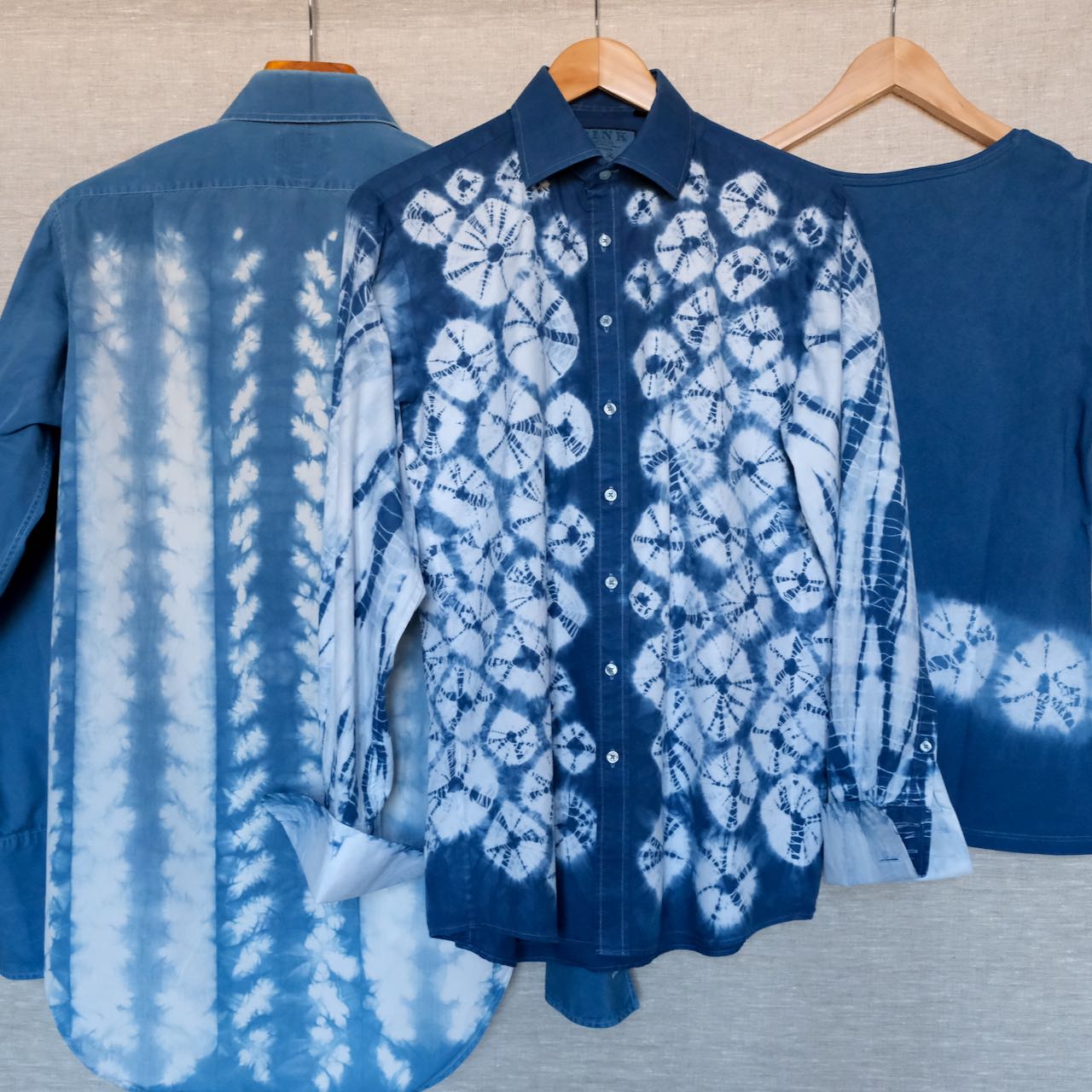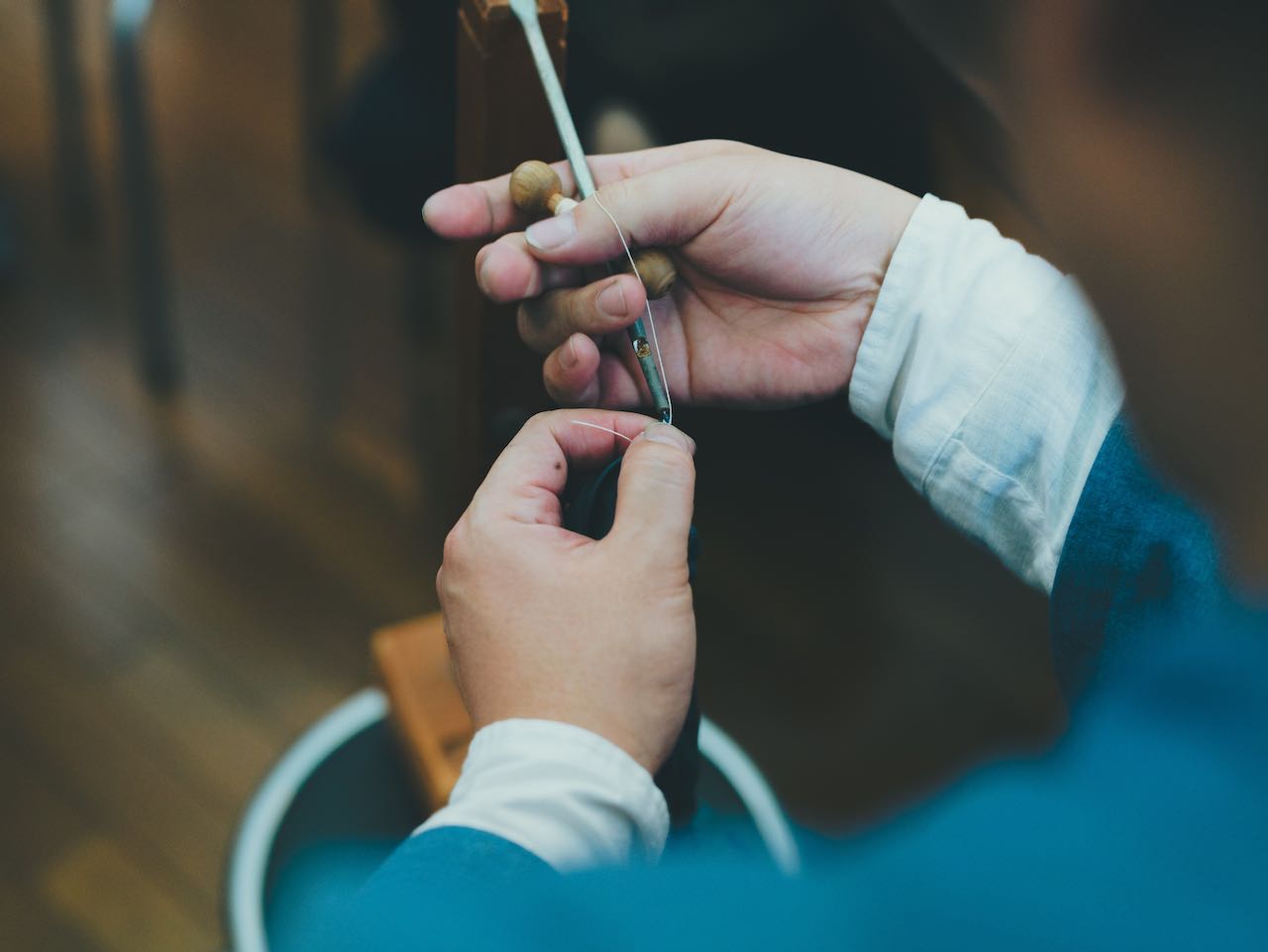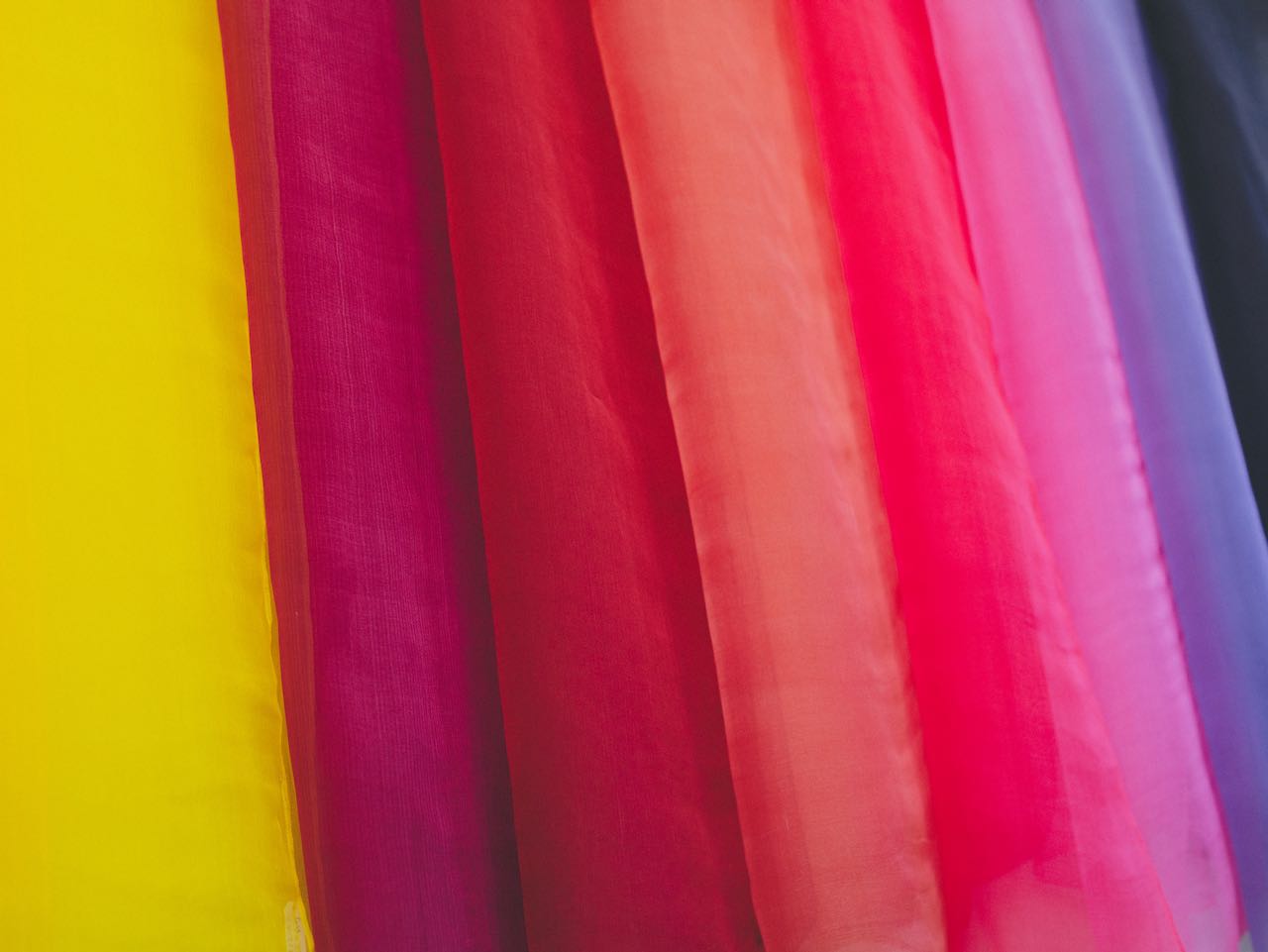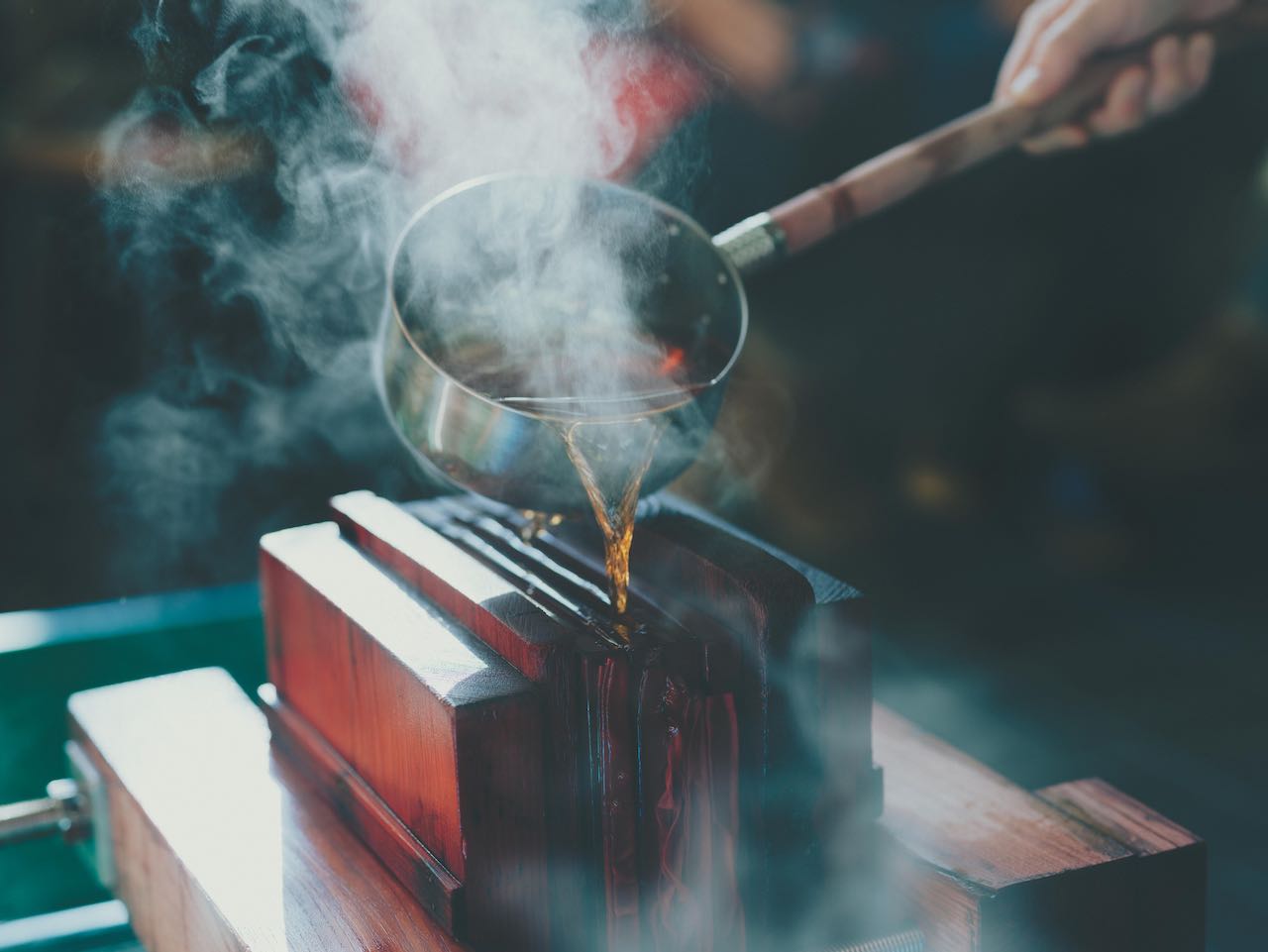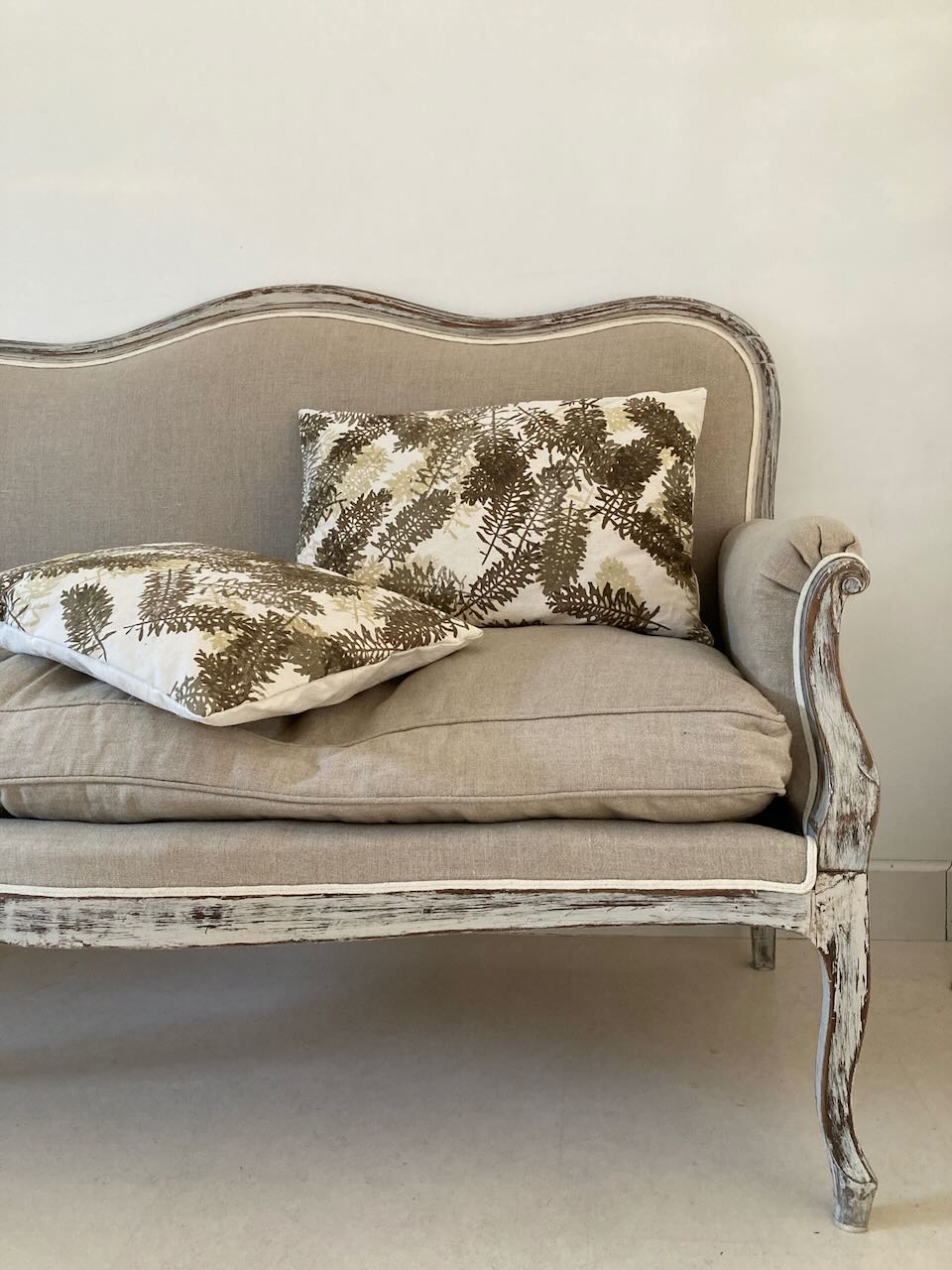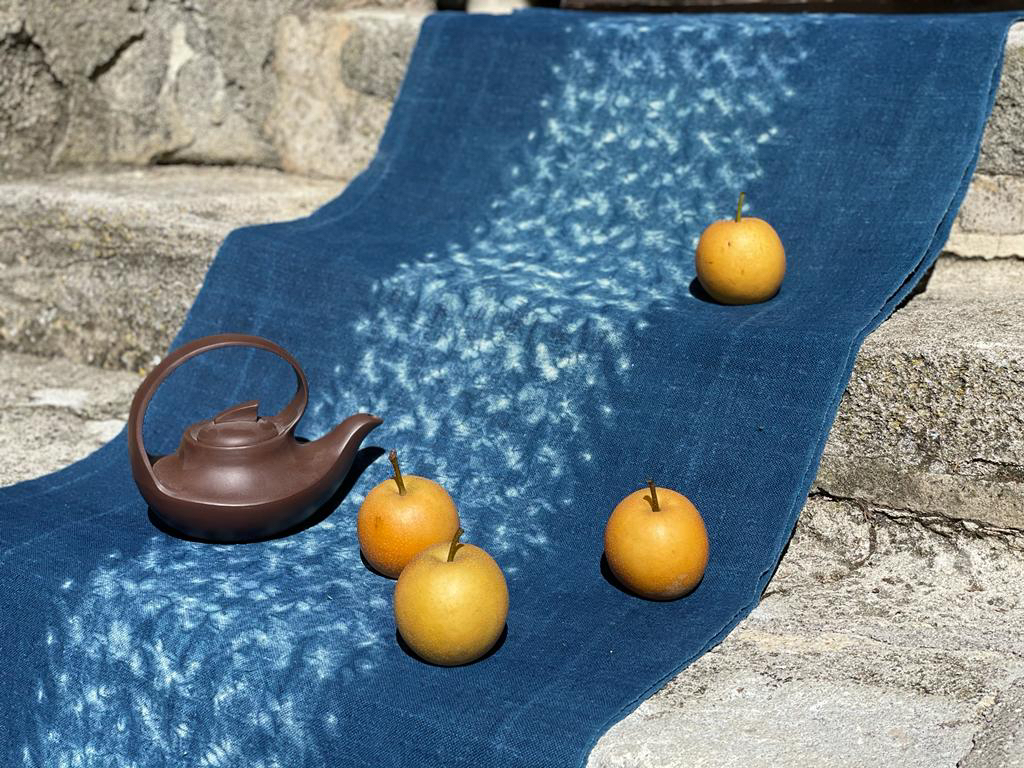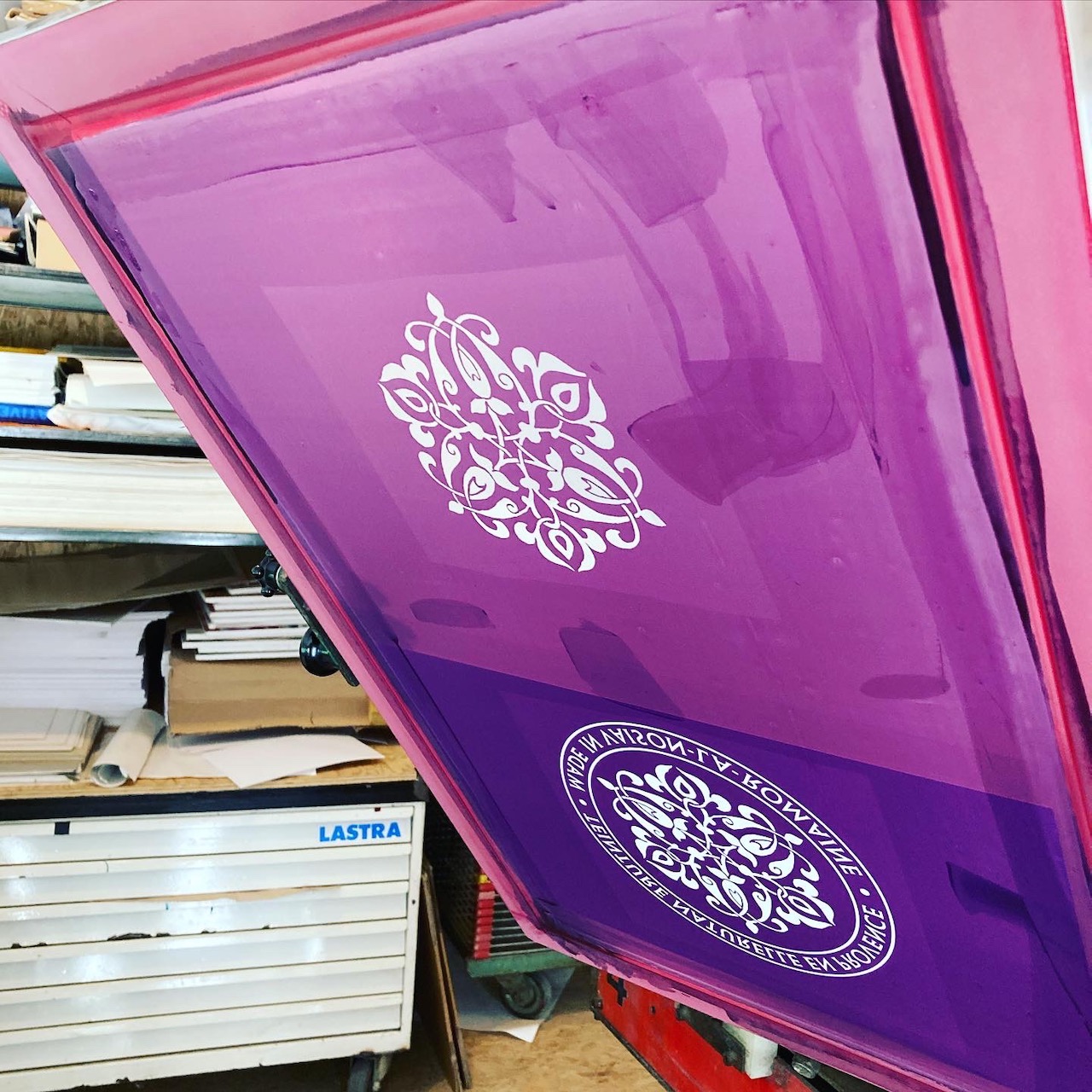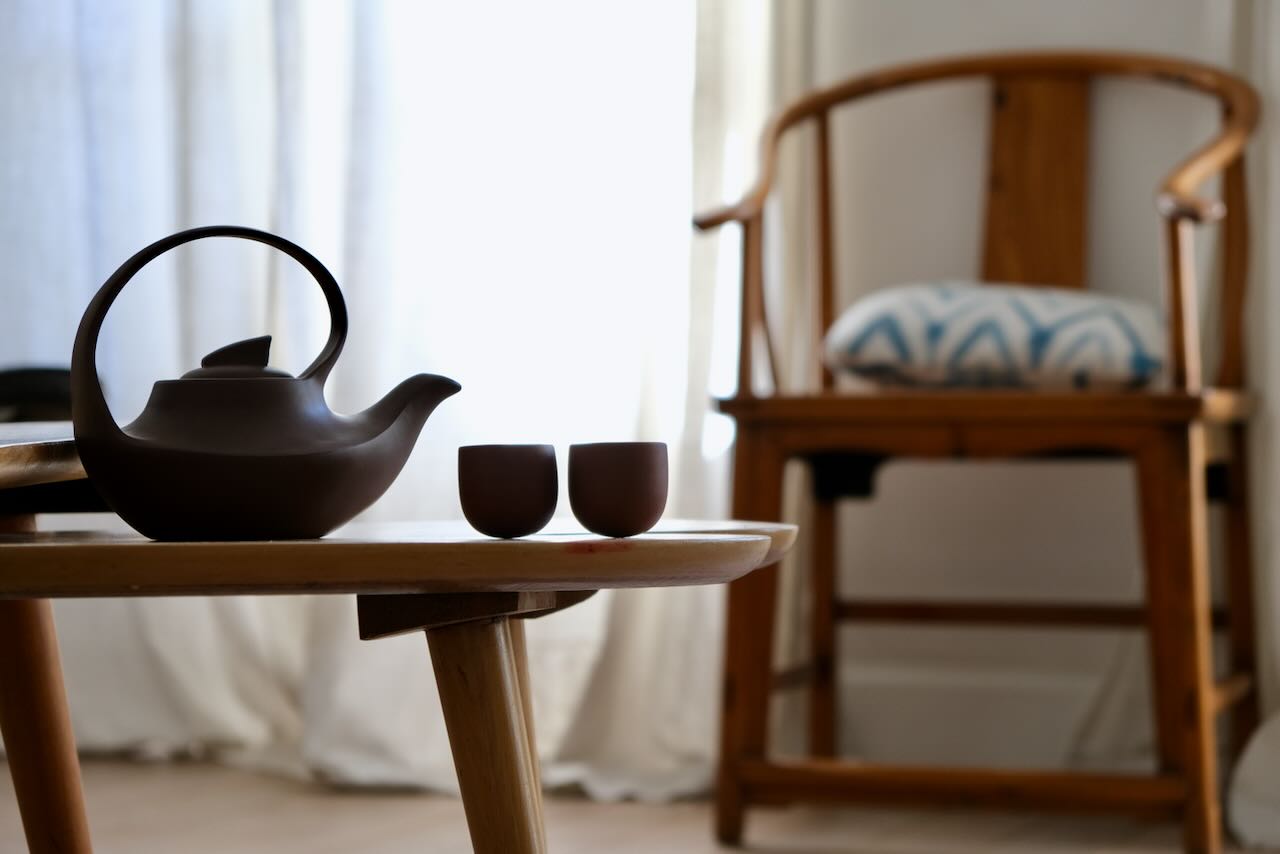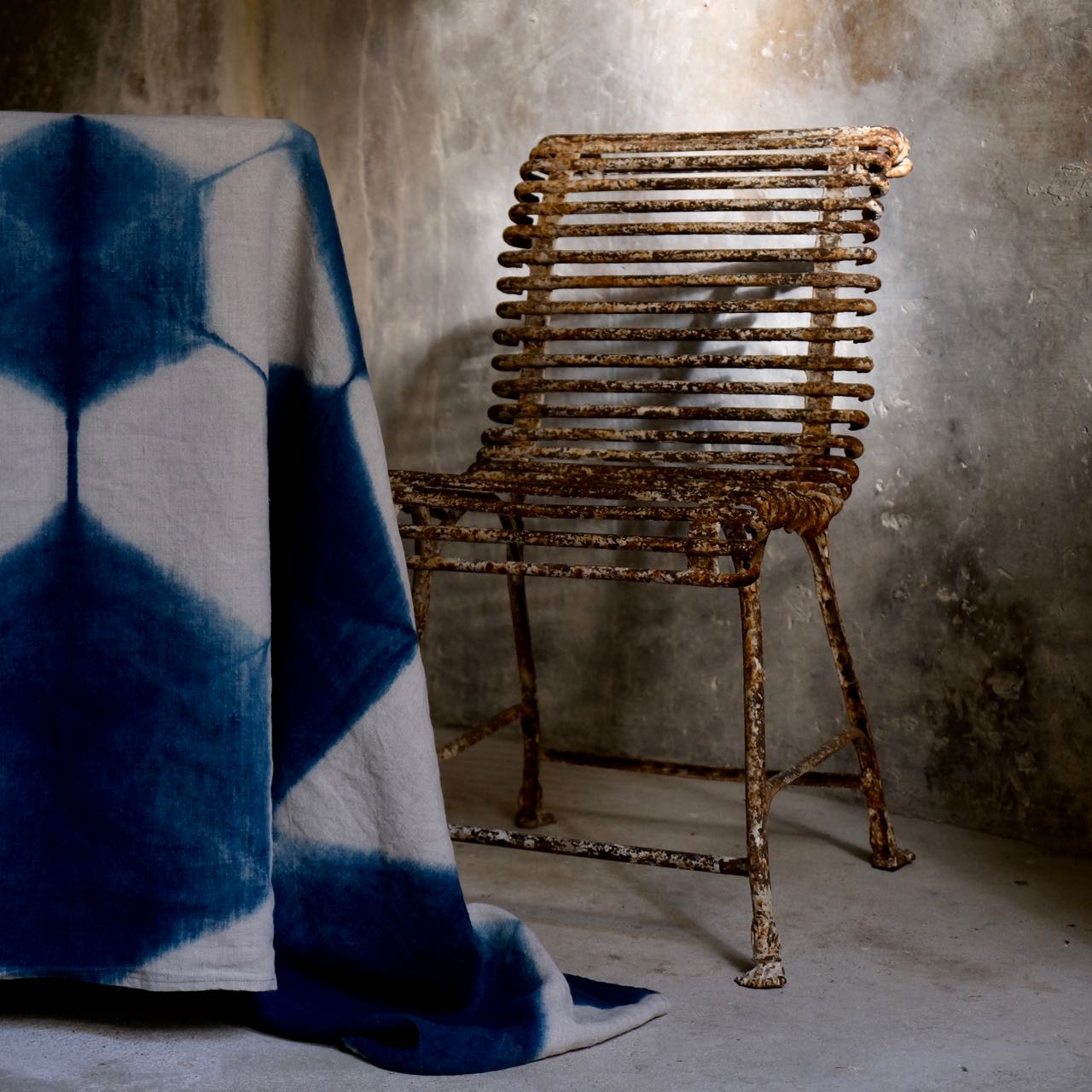I love this pattern, it's irregular regularity and strong contrast. Every line is made by squeezing the fabric in small folds. Those folds are created by small stitches running perpendicular to the lines. A very long process, but once the rhythm is found, I love the...
Blog
Tegumo shibori
Tegumo shibori is a type of tied resist developed in Arimatsu, Japan, where I had the chance of training with master Kuno-san from Kuno Studio (see blogpost in process here) During the Edo period, the busy Tokaido route saw the flourishing of trade. Arimatsu's...
Customised lavender bags for Vaison Ventoux Tourism Office
Very happy to be a partner in the launch of the new Vaison Ventoux Tourism Office logo by creating personalised lavender bags 🙂 You will find them on sale at the lovely tourism office shop which showcases many local producers and artisans. A short video of the making...
Upcycling
It all started as a whim, a wish to cover up a stain on an old favourite linen skirt... and it ended up being a great idea! Soon, one of my clients was asking me to upcycle her lovely white linen dress. Upcycling beloved items of clothing to cover up stains, or...
Shibori-zome, Kuno Hiroaki
Part 3 of a 3 parts training trip to Japan by Tinctoria, November-December 2023 I had the chance of meeting Hiroaki Kuno a few years ago when he came to train us in shibori-zome over a week-end at Couleur Garance. As you those who have been following my work would...
Kusaki Kobo, Dr Kasuki Yamazaki
Part 2 of a 3 parts training trip to Japan by Tinctoria Dr Kasuki Yamazaki is a natural dye Professor at the Art and Design University in Yamagata. He has dedicated his life to the research and teaching of ancient Japan's traditional colour aesthetics and dye...
Beni Itajime, Mrs Yoshimura
Part 1 of a 3 parts training trip to Japan by Tinctoria We where very fortunate to discover and practise a near extinct reserve technique: Beni Itajime. While the "classic" Itajime technique using two wood block to apply pressure on fabric to create a resist while...
Pop up in kaki
After a Couleur Garance advance course in serigraphy with natural dyes, I was excited to experience a new fascinating technique. Experimenting different depth of yellow and green with reseda dye on linen. All photos are linked to the respective product
More shiboris
A fun shooting on the stone stairs of our place in Vaison-la-Romaine, in the heart of the medieval town, where I open the showroom upon appointment. All photos are linked to their respective product or category By the pool at La Baye des Anges where I dye the linen...
Serigraphy with natural dyes
An advanced training with dyer Marie Marquet and designer Yohan Puiselvert. We learned how to make a serigraphy frame and how to use it with natural mordants and dyes on cellulosic fibres. Another world of techniques to explore!
Bye Marseille
After over a decade of living in Marseille, we left a piece of our hearts there when moving out. All photos are linked to their respective product or category
Photoshooting at Richard Goullet’s house near Uzes
It was a cold but sunny day, as Provence makes them, in this magical place decorator Richard Goullet created. Journalist Marie Maud Levron and photographer Yann Deret where there to shoot the house, and Richard was so kind as to put forward some of my products. He has...

